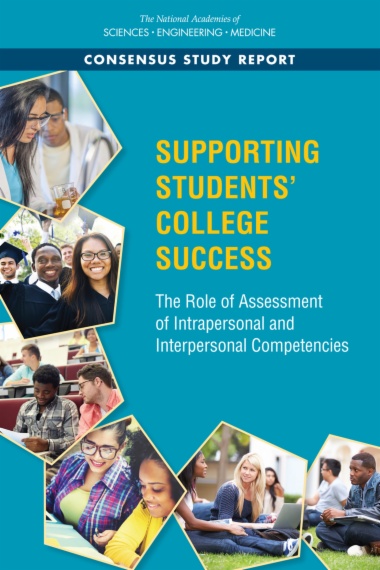

The importance of higher education has never been clearer. Educational attainment—the number of years a person spends in school—strongly predicts adult earnings, as well as health and civic engagement. Yet relative to other developed nations, educational attainment in the United States is lagging, with young Americans who heretofore led the world in completing postsecondary degrees now falling behind their global peers. As part of a broader national college completion agenda aimed at increasing college graduation rates, higher education researchers and policy makers are exploring the role of intrapersonal and interpersonal competencies in supporting student success.
Supporting Students' College Success: The Role of Assessment of Intrapersonal and Interpersonal Competencies identifies 8 intrapersonal competencies (competencies involving self-management and positive self-evaluation) that can be developed through interventions and appear to be related to persistence and success in undergraduate education. The report calls for further research on the importance of these competencies for college success, reviews current assessments of them and establishes priorities for the use of current assessments, and outlines promising new approaches for improved assessments.